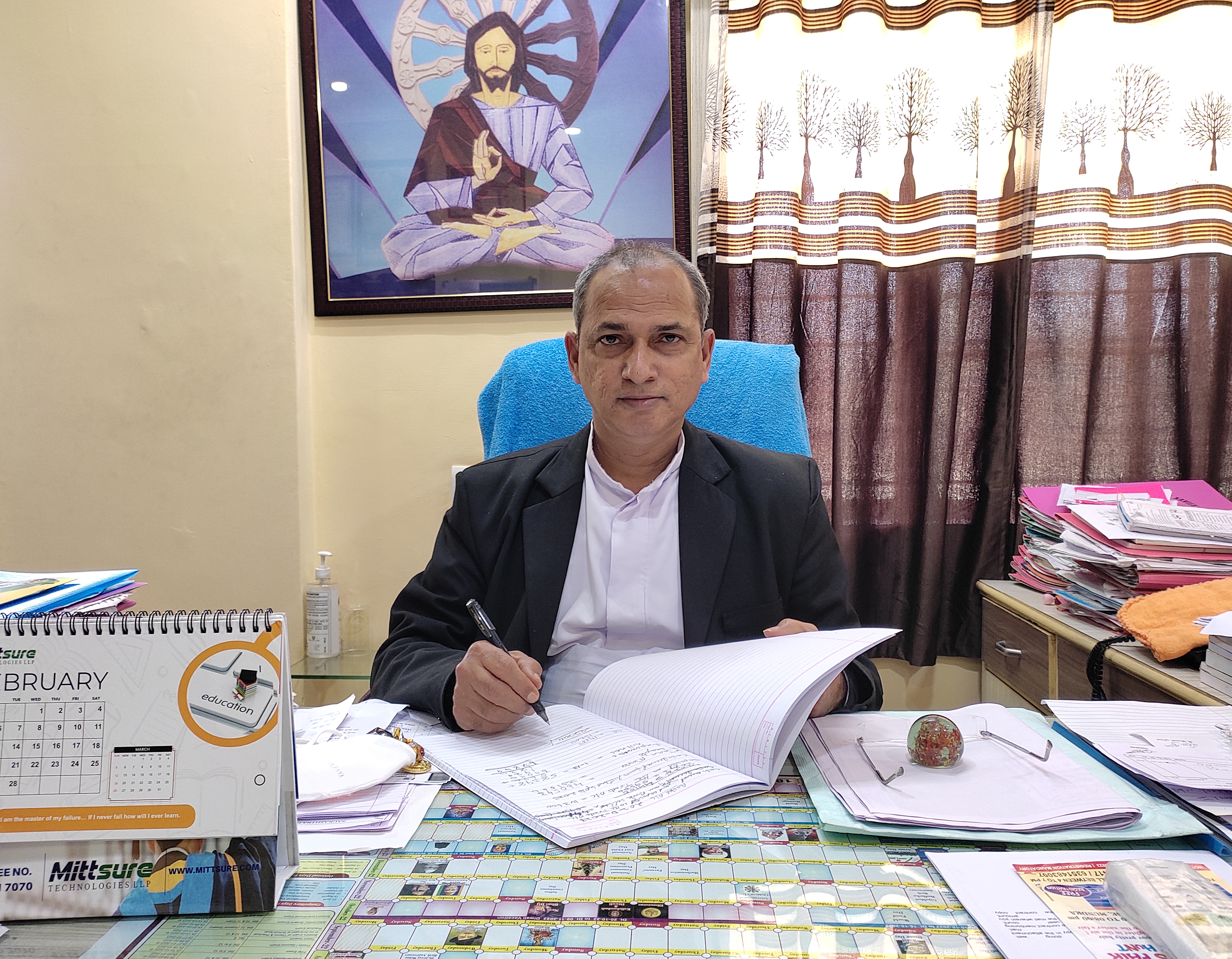
Education and development are two complementary realities with regard to each individual as well as nation, and one without the other becomes stifled. In other words, education and development are two sides of the same coin. True education is all-inclusive in its essence. It acknowledges and respects differences of age, gender, ethnicity, language, disability, status etc. All discriminations in the name of caste, gender, religion, or financial status were originated from ignorance or lack of proper education. Education is further considered critical with regard to empowerment, equity and social justice by people of all times.
Saint Kuriakose Elias Chavara, the founder of Carmelites of Mary Immaculate (CMI) congregation, was a visionary, an innovative front-runner and enthusiastic educationalist with prompt initiatives and strategies. His vision of human beings and society are originated from a divine perspective. The one who sees God in oneself recognizes the same God in others too. Such was the experience of St. Chavara. He realized education as the best means of human uplift and social mobility.
His contributions laid a strong foundation for the educational, social and financial development of the people of his time, particularly of Kerala. His educational reforms brought a new dawn in the entire educational vision which consists of inclusion, expansion, equity, excellence, and a comprehensive outlook. All his endeavors were directed towards the promotion of intellectual, corporal, social, moral and spiritual values.The motive force behind all these activities was the transformation of the society. St. Chavara says, ignorance is blindness and knowledge is light. He understood and hence he used education as the most powerful weapon, to fight against evils existed in the society. So he undoubtedly and emphatically wrote that serving the suffering human beings is the most meritorious service to God. This God realization energized and enabled him to march on with the heart and hands of a Karmayogi. Thus, for people who had been denied education, he turned to be an educator; for all who were deprived of books, he became an apostle of printing technology and an author by himself, for those who were denied knowledge, he became a disseminator of knowledge; and for those who were caught in the grip of old traditions, he became a herald of social transformation.
Imbibing inspiration and motivation from Saint Kuriakose Elias Chavara, our Founder, the CMI Fathers of Gujarat- Rajkot province started various activities, for the social upliftment of the populace in Saurashtra and Kutch, especially in the field of providing quality education.
The St. Xavier’s School at Mundra from its simple beginning in 2000, aims and focuses on the learner-centered and process-oriented education. Competency, environmental-concern, appropriate teaching-learning strategies, creation of motivation, practice based value education, skill development and social commitment are also included as measures of quality and excellence.
Quality and excellence are major concerns in education today. They are not just activities, but are products of environment which are to be built, bit by bit at all levels, that includes (a) physical infrastructure, (b) adequate quality teachers, (c) effectiveness of teaching learning process, (d) sustained efforts for promoting research, and (e) effective academic governance which is one of the important elements of excellent and quality education. If education is an enhancing process, the educators are to be considered the pillars of the educational process.
Saint Kuriakose Elias Chavara says that a clear and specific vision and attitude to the society, creative plan of action to raise human dignity, and constant and practical efforts to illumine human minds will promote inclusive society with equity and dignity. It will bring easy access to knowledge, faster development of society, quality of personal life, and better global relationships. In other words, St. Chavara succeeded in creating knowledge, retaining knowledge and transferring knowledge, and thus multiplied the effectiveness of educational system.
The Xavierites are molded and formed in order to achieve an all round development based on religious, moral and social values and become true Indians who can create good families, good societies and ultimately a good nation, to which the world will look with wonder and awe.
-Fr. James Katteth
Principal
St. Xavier’s High School
Mundra-Kachchh
What is special about us?
Vision & Mission Statements
Admission Procedure
The age of admission is 3.5 Years for K.G. Junior & 5 Years for Std. 1st with a corresponding increased in the higher standards on or before 31st May.
A new admission remains incomplete until the Leaving Certificate from the recognized school last attended is produced. The counter signature of the District Education officer or Inspector of School is absolutely necessary on the Leaving Certificate in the case of pupil who comes from outside Gujarat State. For any fresh admission a birth certificate from a competent authority is required. The school year normally begins in June and ends in May. Students, as a rule, are admitted in the month of June. No name can be recorded in the school register until the formal application has been accepted and the admission fees paid. The Principal reserves to himself the right of admission.
Withdrawl
A month's notice is to be given before the withdrawal of a student. Such notice should be given in writing by the parents or guardian. Requests by pupils themselves will not be entertained. No leaving Certificate is issued unless all dues to the school have been paid in full, and Library Books etc. returned.
20

Years of experience
1500

Students Enrolled
40

Qualified Teachers
12

Total Groups
GENERAL RULES
-
Five minutes before the classes begin, all teachers and students assemble in the school courtyard for a short prayer (Assembly) . At the end of each school day, before the students disperse, thanks giving prayer is said in the class. Parents and guardians are not expected to walk directly into the classrooms to meet the teachers or children. No visitors will be permitted to meet the students during class hours.
-
Students will not be sent home, even in emergency unless a responsible person comes to fetch them with a note of authorization from the parent of guardian. Students are not allowed to go out of the school campus during school hours including recess time. No student who has been absent without leave or is late, will be admitted to class without the Principal's / Vice Principal's signature.
-
The Handbook issued to every student at the beginning of the year is to be kept intact and neat all through the year and should be brought to school every day. It is the means of communication for the school authorities and staff with the parents about the child. At the same time it is the important document of the student's career and conduct at school.
-
Students are not allowed to write anything on the diary part of the handbook. It must be safely kept all through the year and will not be easily replaced if once lost. When it happens to be lost he/she will be punished and heavily fined for replacements.


